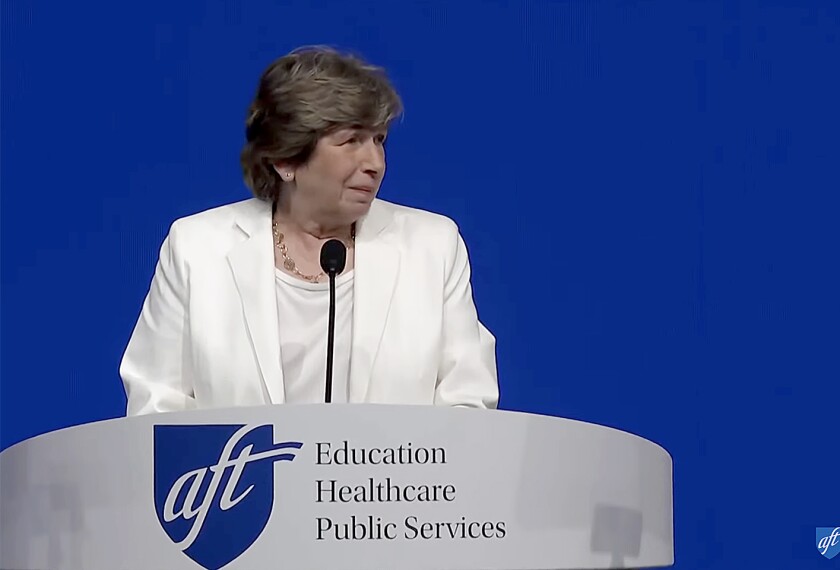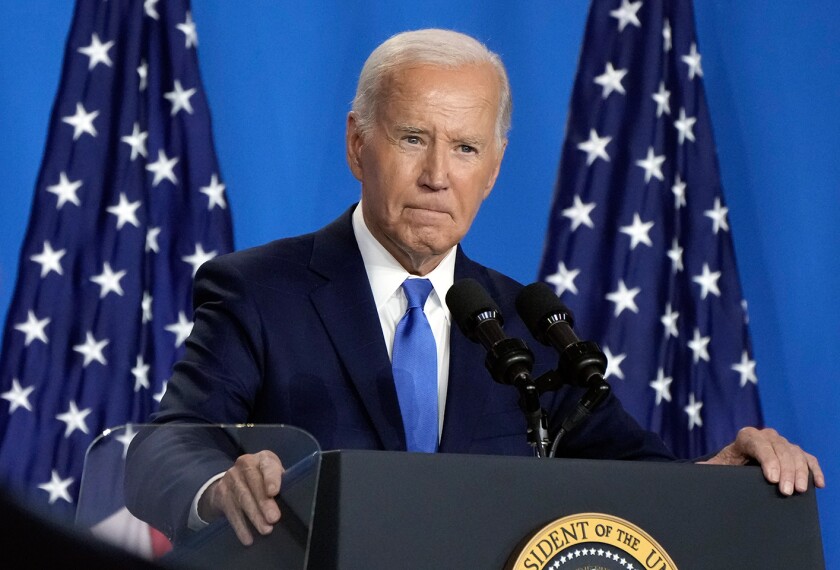The U.S. Department of Education announced an agreement with California last week that would end a discrepancy over how that state determines which school districts are in need of improvement under the federal No Child Left Behind Act.
The change would bring the number of California districts found to be in need of improvement up to 184 from 14 now identified by the state, but fewer than the 310 California officials feared might have been labeled by the department. The state has 1,000 school districts.
The agreement, announced March 8, the same day Gov. Arnold Schwarzenegger met in Washington with Secretary of Education Margaret Spellings, follows months of wrangling between state and Washington officials over the requirements of the No Child Left Behind law.
Raymond J. Simon, the department’s assistant secretary for elementary and secondary education, said last week that California had received approval to use Tennessee’s accountability model to determine which of its districts are not up to federal standards. Under that model, which is being used in about 20 states, districts are labeled in need of improvement if they miss federal achievement goals, or adequate yearly progress, for two consecutive years in a subgroup or subject across all grade spans.
For example, if a district subgroup, such as Latino students, does not make AYP for mathematics in elementary schools for one year, then fails to make AYP in math for the middle-grades span the second year but is successful on the elementary level that year, the district would not be identified as in need of improvement.
The No Child Left Behind Act requires that districts labeled as needing improvement develop improvement plans and ultimately face sanctions, including state takeovers, if they don’t progress sufficiently.
California had been using an additional method to determine whether districts met annual progress targets. The state allowed districts to avoid the needs-improvement label by looking at whether their low-income students hit a certain threshold on state standardized tests. Under that method, only 14 districts met the needs-improvement criteria.
“There was some misunderstanding on the part of the [state board of education] at the time they used the indicator as to whether or not they could use it,” Mr. Simon said.
He said the law does not permit an additional indicator unless it is to be used to put more schools in improvement.
‘A Compromise’
The California state board approved the agreement March 9, and has notified the 184 districts of their status and asked them to draft improvement plans.
The districts also must cease providing supplemental educational services themselves by the end of the current semester, Mr. Simon said. Federal law requires those tutoring services for students in districts deemed in need of improvement. But the Education Department says that districts labeled in need of improvement cannot themselves provide that extra help.
The Education Department will treat the 2005-06 school year as the first year of the newly labeled districts’ improvement plans.
California State Superintendent of Public Instruction Jack O’Connell said that the agreement was a compromise, and that he was pleased with some aspects of it and not pleased with others.
“This is a compromise from a very inflexible federal department and their one-size, overly prescriptive approach to public education,” he said in an interview last week.
Mr. O’Connell said some of the districts on the revised list are high performers and were included because of low test-participation rates by special education students and other subgroups.




